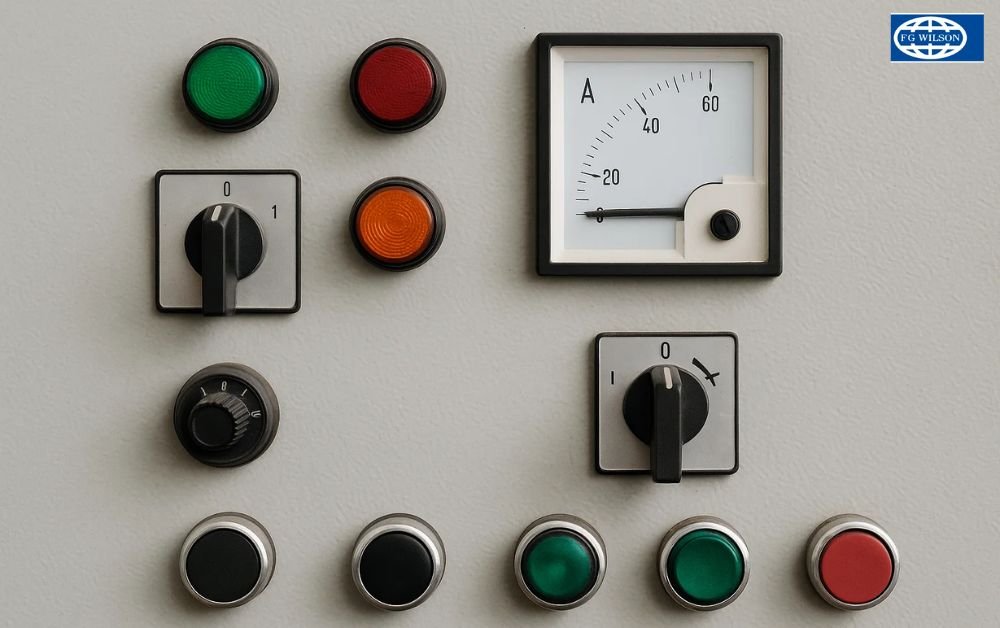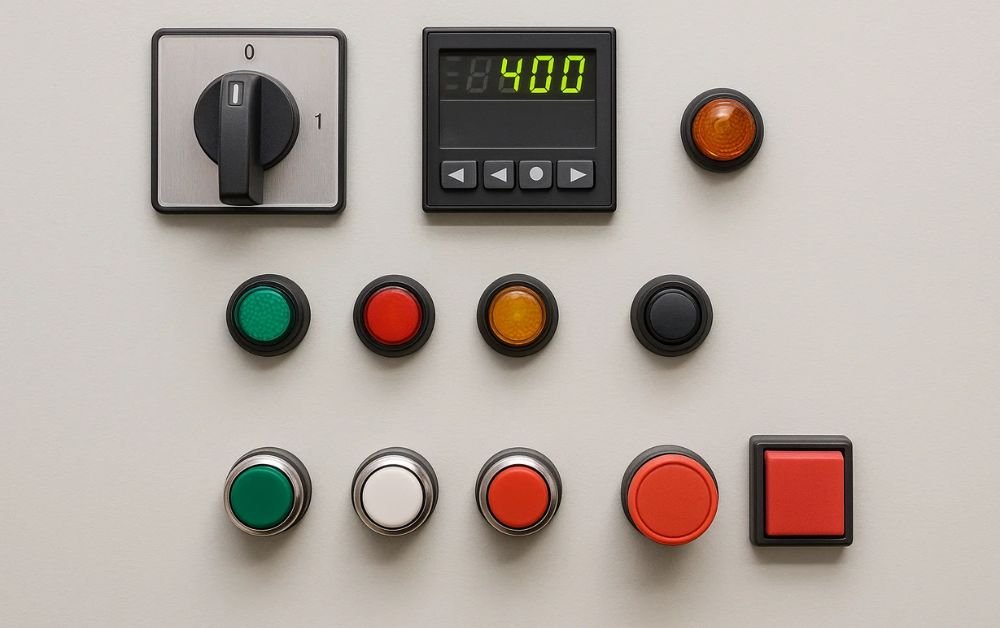What Are Industrial Control Panels?
An industrial control panel is an assembly of electrical components that manage and regulate the functioning of machinery and systems in an industrial setup. These panels include devices such as circuit breakers, relays, switches, sensors, and programmable logic controllers (PLCs). Together, they allow operators to monitor, control, and automate various processes within a facility.
From small-scale units to large manufacturing plants, control panels ensure that machinery operates within defined parameters, reducing human intervention and enhancing process consistency.
The Role of Control Panels in Industrial Automation
1. Process Monitoring and Control
Control panels serve as the command centers for industrial systems. By integrating sensors and PLCs, operators can monitor real-time data like temperature, pressure, flow rate, and speed. If any of these parameters deviate from preset thresholds, the control panel can trigger alarms or automatically adjust operations to maintain efficiency.
2. Reducing Human Error
In manual operations, human error is a significant risk that can lead to equipment damage or product defects. Automating tasks through control panels drastically reduces the chance of errors, ensuring consistent product quality and safe operations.
3. Increasing Productivity
Automated processes managed through control panels can run 24/7 without fatigue, significantly increasing output. Machines can start, stop, and adjust operations automatically based on programmed logic, allowing for faster cycle times and greater throughput.
4. Energy Efficiency
Modern control panels can be designed to optimize energy usage by adjusting power supply and load conditions. Variable frequency drives (VFDs), for example, can control motor speed, helping industries save energy and reduce operational costs.
5. Safety and Compliance
Safety is paramount in any industrial environment. Control panels include interlocks and emergency stop features that can shut down operations instantly in hazardous situations. Additionally, they help businesses comply with national and international safety regulations.
Types of Control Panels Used in Industry
There are several types of control panels, each tailored to specific industrial needs:
- Motor Control Centers (MCCs): Used to control multiple electric motors, commonly in water treatment, manufacturing, and mining industries.
- PLC Panels: Feature programmable logic controllers that automate complex sequences of operations.
- VFD Panels: Regulate the speed of motors to improve energy efficiency.
- Lighting Control Panels: Manage lighting systems in large industrial facilities.
- Power Distribution Panels: Distribute electrical power to various sections of a plant safely and efficiently.
Choosing the right type depends on the nature of the industry, the complexity of operations, and the scale of automation required.
Why Local Manufacturing Matters
When sourcing equipment like control panels, local expertise can make a big difference. A reliable control panel manufacturer in Uganda understands the local industrial landscape, including power grid fluctuations, environmental conditions, and regulatory frameworks. This allows them to build panels tailored to local requirements and challenges.
Local manufacturers also provide timely support and maintenance, ensuring that critical industrial operations don’t face prolonged downtimes due to technical issues or delays in spare part availability.
Industries Benefiting from Automation with Control Panels
The use of control panels is widespread across various industries in Uganda and beyond. Some key sectors include:
1. Manufacturing
Control panels help streamline production lines by managing machine cycles, assembly operations, and quality checks.
2. Agriculture and Irrigation
Automated irrigation systems, fertilizer dosing, and climate-controlled greenhouses rely on control panels for precision farming.
3. Mining
Heavy machinery and ventilation systems in mines require constant monitoring and control to maintain safety and efficiency.
4. Water Treatment
Pump control, filtration processes, and chemical dosing in water treatment plants are managed through automated control systems.
5. Food and Beverage
From packaging to temperature control in processing units, automation ensures hygiene and consistent product quality.
Future Trends in Control Panel Technology
Control panels are evolving with advances in technology. Some of the emerging trends include:
- Remote Monitoring: Integration of IoT enables remote access and monitoring of industrial processes from anywhere.
- Touchscreen HMIs: Human Machine Interfaces (HMI) are becoming more user-friendly, replacing traditional buttons with intuitive displays.
- Smart Diagnostics: Modern panels can detect faults and suggest corrective actions automatically.
- Modular Designs: Panels can now be expanded or upgraded more easily to accommodate new machinery or process changes.
Industries adopting these innovations are better positioned to stay competitive in an increasingly automated world.
Conclusion: Trust Blackwood Hodge Ltd for Automation Excellence
If you’re looking for a dependable control panel manufacturer in Uganda, Blackwood Hodge Power Services Ltd . stands out as a trusted partner in industrial automation. With years of expertise, a focus on quality, and a deep understanding of Uganda’s industrial needs, Blackwood Hodge Ltd delivers control panels that are robust, reliable, and tailored to enhance productivity. From custom designs to on-site support, they offer comprehensive solutions that drive operational excellence across sectors. Whether you’re starting your automation journey or upgrading an existing system, Blackwood Hodge Ltd is the name to rely on.


